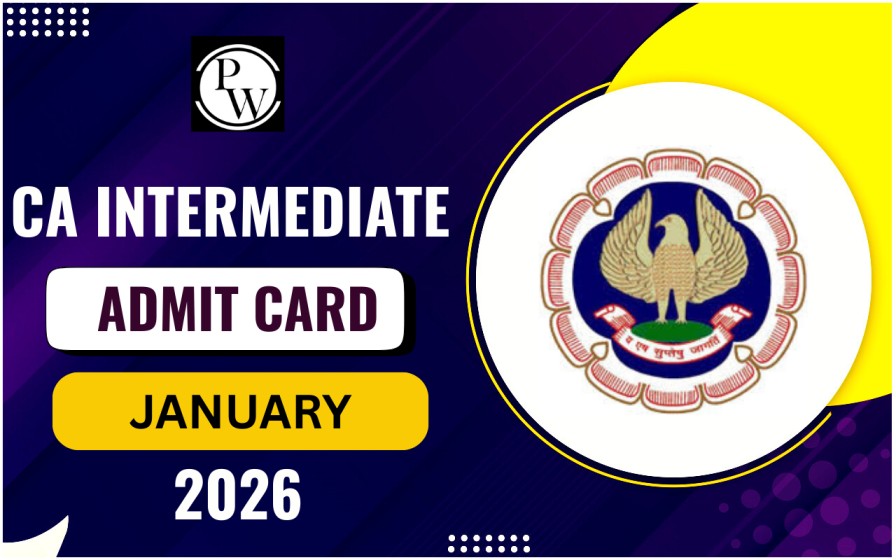
Enterprise resource planning (ERP) software streamlines daily business tasks like inventory and accounting. It serves as a central hub for data accessible by different teams.
Traditionally, ERP was for big companies, but now small businesses are embracing it too. This article covers an important topic for CA Exams , what ERP is, its advantages, how it operates, and which industries rely on it today.What Is Enterprise Resource Planning (ERP)?
Enterprise resource planning (ERP) is like the central control hub for businesses, where they manage and blend all the vital aspects of their operations. It's crucial for many companies because it streamlines resource planning by bringing together all the necessary processes under one roof. Think of ERP software as a tool that links together various functions like planning, inventory management, sales, marketing, finance, and human resources, among others. In simpler terms, an ERP system acts as the adhesive that connects different computer systems within a large organization. Without it, each department would operate on its own system tailored to its needs. However, with ERP software, all departments maintain their systems, but they can access them through a unified application and interface.What Does Enterprise Resource Planning Software Do?
Enterprise Resource Planning software helps different departments within a company communicate and share information seamlessly. It gathers data from various divisions and makes it accessible across the organization, improving productivity. By integrating information from production, finance, distribution, and human resources, ERP software makes a company more self-aware. It also streamlines operations by connecting different technologies, eliminating redundancies, and ensuring compatibility. ERP systems typically combine accounts payable, inventory management, order tracking, and customer databases into a unified platform.| Also Check: | |
| Management Accounting | Financial Accounting |
| Auditing and Assurance | Taxation |
| Financial Management | Business Laws and Ethics |
How Does Enterprise Resource Planning (ERP) Work?
Over time, Enterprise Resource Planning systems have transformed from old-school setups with physical servers to modern cloud-based software accessible online. The company that develops the ERP system usually manages it, while client companies lease services from the platform. Businesses choose which applications they need, and the hosting company installs them on the rented server. Then, both parties collaborate to integrate the client's processes and data into the platform. Once everything is connected, all data is stored on the server and accessible to authorized users instantly. The system can generate reports with metrics and visuals to help clients track their business and departmental performance.Benefits of Enterprise Resource Planning
Businesses use enterprise resource planning (ERP) for various reasons, like growing, saving money, and running better. Even though different companies aim for different benefits, there are some key ones to consider.Boosts Accuracy and Productivity
By connecting and automating business tasks, ERP cuts out unnecessary steps and makes things more accurate and efficient. It helps different departments work together smoothly, leading to faster and better results.Enhances Reporting
Some businesses find it helpful to have real-time data from one system. Good reporting means better planning, budgeting, and keeping everyone informed, like shareholders.Improves Efficiency
ERPs let businesses quickly find information they need for clients, vendors, and partners. This means happier customers and employees, faster responses, and fewer mistakes. Plus, it often saves money by making things run smoother.Boosts Collaboration
With ERP, departments can work together and share knowledge easily. When everyone understands how their work fits into the big picture, it boosts morale and productivity. Plus, it frees up time by cutting out boring tasks, so people can focus on more important work.Types of Enterprise Resource Planning (ERP)
There are three main types of Enterprise Resource Planning systems for businesses: on-site, cloud-based, and hybrid. Each has its pros and cons and works best for different situations. Here's a breakdown:On-site ERP:
These are the traditional ERP systems hosted on a business's own servers. With on-site ERP, the business manages and implements the system itself, without relying on online solutions. These systems have been around since the 1990s when the internet was just starting to develop.Cloud-based ERP:
Today, many ERP systems are cloud-based, meaning they're hosted online rather than on the business's servers. Cloud ERPs centralize a business's data online, making it accessible to employees worldwide. They're regularly updated by service providers and often come with advanced features like artificial intelligence and predictive analytics.Hybrid ERP:
Hybrid ERPs combine on-site and cloud-based systems. Businesses that have invested heavily in their on-site systems or store sensitive data on-site might pair them with cloud systems. This allows them to benefit from cloud updates without giving up their existing infrastructure. Elevate your proficiency in Enterprise Resource Planning (ERP) for CA exams with PW CA Courses . Gain comprehensive insights and skills essential for success in the industry. Enroll now to unlock your potential.| Also Check | |
| Professional Ethics and Code of Conduct | Capital Budgeting and Investment Decisions |
| Working Capital Management | Commercial Laws |
| Corporate Laws | Contract Law |
Enterprise Resource Planning (ERP) FAQs
🔥 Trending Blogs
Talk to a counsellorHave doubts? Our support team will be happy to assist you!

Check out these Related Articles
Free Learning Resources
PW Books
Notes (Class 10-12)
PW Study Materials
Notes (Class 6-9)
Ncert Solutions
Govt Exams
Class 6th to 12th Online Courses
Govt Job Exams Courses
UPSC Coaching
Defence Exam Coaching
Gate Exam Coaching
Other Exams
Know about Physics Wallah
Physics Wallah is an Indian edtech platform that provides accessible & comprehensive learning experiences to students from Class 6th to postgraduate level. We also provide extensive NCERT solutions, sample paper, NEET, JEE Mains, BITSAT previous year papers & more such resources to students. Physics Wallah also caters to over 3.5 million registered students and over 78 lakh+ Youtube subscribers with 4.8 rating on its app.
We Stand Out because
We provide students with intensive courses with India’s qualified & experienced faculties & mentors. PW strives to make the learning experience comprehensive and accessible for students of all sections of society. We believe in empowering every single student who couldn't dream of a good career in engineering and medical field earlier.
Our Key Focus Areas
Physics Wallah's main focus is to make the learning experience as economical as possible for all students. With our affordable courses like Lakshya, Udaan and Arjuna and many others, we have been able to provide a platform for lakhs of aspirants. From providing Chemistry, Maths, Physics formula to giving e-books of eminent authors like RD Sharma, RS Aggarwal and Lakhmir Singh, PW focuses on every single student's need for preparation.
What Makes Us Different
Physics Wallah strives to develop a comprehensive pedagogical structure for students, where they get a state-of-the-art learning experience with study material and resources. Apart from catering students preparing for JEE Mains and NEET, PW also provides study material for each state board like Uttar Pradesh, Bihar, and others
Copyright © 2026 Physicswallah Limited All rights reserved.









